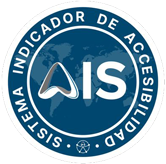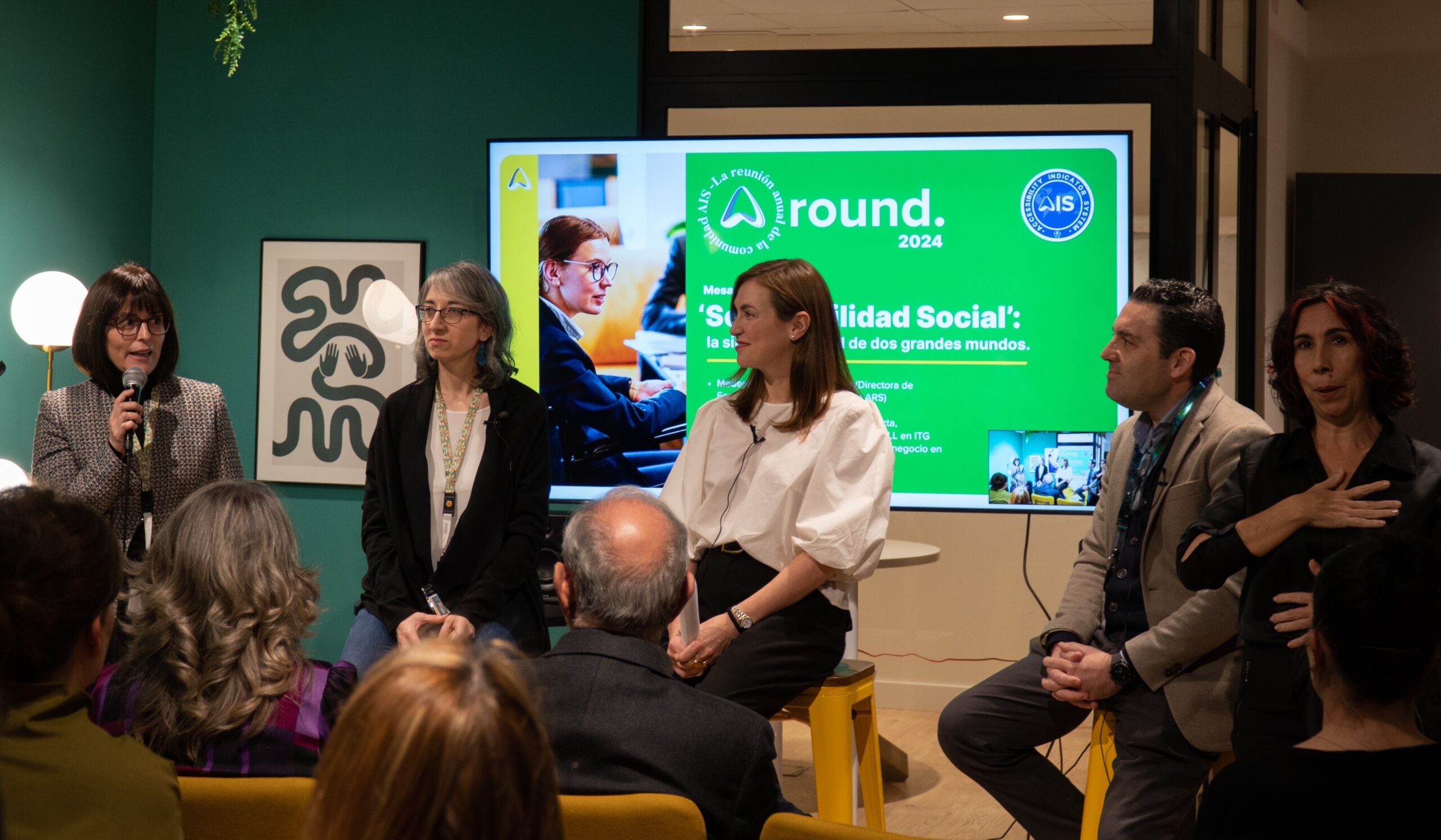Accessibility and social as an inseparable part of the concept of sustainability was the conclusion of the round table ‘Social Sustainability’, which took place during Around 2024, the annual meeting of the AIS Authorised Entities.
The round table was moderated by Cristina Pezonaga, head of Human Resources and Training at Fundación ARS, and was attended by Gálata Llano, director of Safecity; Rosalidia Álvarez Hernández, architect and technical manager of the WELL certificate at ITG; and Antonio Martínez García, head of business development at Grupo Argenia, as speakers.
All agreed that social issues are implicit in the concept of sustainability and that people must be at the centre of sustainability policies and strategies.
‘Social is part of sustainability. It is implicit’, said Rosalidia Álvarez Hernández, who added that “sustainability is ensuring the needs of the present without compromising those of the future; and always with a balance between environmental protection, economic development and social aspects”.
Antonio Martínez García agreed with this definition, which he expanded by indicating that if one of the three legs fails, sustainability cannot be sustained. ‘The three legs are essential’, said the Argenia Group’s head of business development.

Gálata Llano explained that the acceptance of social as part of sustainability is relatively recent. ‘Today we can say that sustainability includes the social aspect, but not so long ago. It is increasingly understood that it makes no sense to talk about sustainability if people are not in it’, she stressed.
Impact of the SDGs on social sustainability
On the real impact of the UN Sustainable Development Goals, the technical manager of the WELL certificate at ITG pointed out that ‘little by little things are being achieved, but little by little’ and alluded to a study that indicates that ‘50% of the goals are advancing very insufficiently, 30% are stagnating, and only 20% are advancing adequately’.
On the other hand, the director of Safecity was more hopeful, as she believes that society is increasingly committed to diversity. ‘When we started working in Peru, there was no talk of accessibility, of diversity, but 10 years have passed and you can see that I no longer speak as if I were preaching in the desert, I am no longer alone. I see an interest in companies to do things well’.

